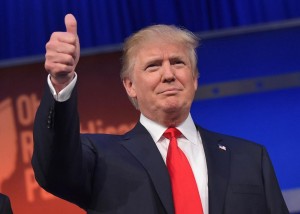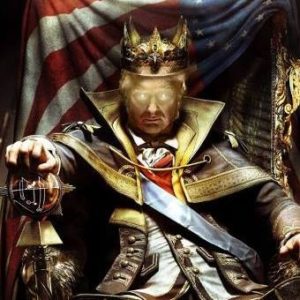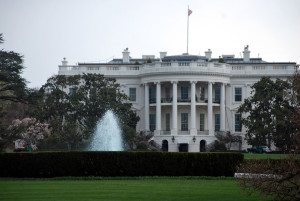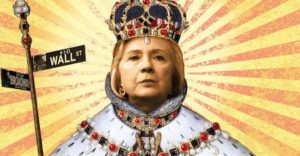Donald Trump: His Appeal, The Good, The Bad, and Pro Wrestling?
Monday, February 29, 2016 by Jonathan R. Gibbons in
Demystifying the Attraction of Donald Trump
Donald Trump is extremely likable to a sizable portion of the American electorate. There are even notable closet Trump supporters as Novelist Bret Ellis tweeted, “Just back from a dinner in west Hollywood: shocked the majority of the table was voting for Trump but they would never admit it publicly” (USA Today). Trump is comedic, he appears genuine, and he is unfiltered. He has charisma and charm. He is fearless and has depth of fortitude. Trump towers– pun intended –over political correctness, uptight feminists, and liberal college students who cry and moan about micro-aggression’s and virtually every other little thing that hurts their feelings. Trump is not bought and paid for. Trump is the money and so he says what he wants without fear; often with comical exaggeration. He is literally self-funding the majority of his campaign just like he says; 70% of his fundraising is from self-financing to be exact (Open Secrets). He is an established and brilliant business man who made billions for his companies throughout his lifetime. People who dislike Trump say things like, “he’s an idiot,” “he’s a bully,” “he’s just a reality show star,” “he’s unhinged,” “he’s a Clinton plant,” or “he’s a clown pretending to be a serious candidate.” Love him, like him, or hate him, Trump should be admired for many things.
A slew of Americans have grown tired of “cookie-cutter” politicians, special interest dominated candidates, and the overly scripted and predictable routines of the mainstream political movers and shakers. Like the WWE pro wrestlers and story-lines of today (e.g. Roman Reigns and the Authority), the typical political candidate is overly scripted, prepared, and, well, transparently fake as hell. This is why intelligent WWE fans reject their synthetically-pushed entertainers and plots, and it is also one of the reasons voters reject Jeb Bush and Marco Rubio. Meanwhile, WWE “creative” and the political “experts” scratch their heads in bewilderment at why their generic mannequin is not winning over the audience. Chris Christie exposed Rubio for this in the 8th Republican debate when he called him out for constantly regurgitating a rehearsed 25 second speech (see the video below). One of the reasons Rand Paul failed to garner his father’s supporters was because, unlike his father, he also came off overly scripted and fake.
Like the successful pro-wrestlers of old, e.g. Steve Austin, Hulk Hogan, and The Rock, the successful political candidates rise organically. They keep it real and connect with their audience because they relate to them and give them hope. They seduce them with their natural charm and charisma and never insult their subjects intelligence; they know how to flatter. By providing the electorate with a hope or view of restoring something they feel they are lacking, these seductive candidates spark the dormant passions of the apathetic voter. Ronald Reagan and JFK are timeless examples of political seducers. In his book, “The Art of Seduction“, Robert Greene says of JFK (my emphasis):
Kennedy’s seduction of the American public was conscious and calculated. It was also more Hollywood than Washington… All of Kennedy’s actions were framed in the conventions of Hollywood. He did not argue with his opponents, he confronted them dramatically… He did not discuss policy details but waxed eloquent about grand mythic themes, the kind that could unite a divided nation (Make America Great Again!, Change!). (Greene 2001, 124-125)
Mass seducers such as Napoleon or John F. Kennedy offer their public just what it lacks. When Napoleon came to power, the French people’s sense of pride was beaten down by the bloody aftermath of the French Revolution. He offered them glory and conquest. Kennedy recognized that Americans were bored with the stultifying comfort of the Eisenhower years; he gave them adventure and risk. (The Moon Landing, Build a Great Wall!) (Greene 2001, 174)
Almost any student of politics will acknowledge that most voters do not vote based on a candidate’s policies or credentials, but based on the character and likability of the candidate. Reagan was likable, Kennedy was likable, and Trump is likable. Most voters are driven by their passions and instincts. They pick or choose three major issues and if a candidate shares the same opinion, they are likely on board. If that candidate also possesses the aforementioned seductive prowess, then the voter is on board with a passionate flare. But what really matters most when choosing a candidate is not their likability or catchy slogans, but their legitimate policy proposals, their professional credentials, and their overall behavior and how it reflects upon their true character.
Evaluating Trump vs. Clinton Beyond Likability
In their book on body language and recognizing an individuals evolutionary-programmed behaviors, ex-FBI agent Joe Navarro and psychologist Marvin Karlins explain that, “…the best predictor of future behavior is past behavior” (Navarro & Karlins 2008, 12). This is precisely why Hillary Clinton is a terrible choice for president. She was for the Iraq War, then against it; against gay marriage, then for it. Her past behavior shows that she cannot be trusted. Clinton is a proven liar and her current policy proposals are, hence, unreliable. Additionally, unlike Trump or Bernie Sanders, the overwhelming majority of her funding, 77%, comes from big donor special interests (Open Secrets). There is no doubt Clinton has the experience to be president, but she has no credibility when it relates to her policies or her character. She seduces by flattering the populace with potentially being the first female president; she is fake and it is transparent to the cognizant voter. Bernie Sanders, conversely, has a consistent voting record and his policy proposals should be taken as honest offers. Sanders also receives 70% of his donations from small donors (Open Secrets).
(more…)
Fire Our “King” – On Why We Should Consider Abolishing The Office of the Presidency
Friday, January 23, 2015 by Jonathan R. Gibbons in
 If you are like me and you enjoy studying political philosophy and examining government theory, then you are likely also pet peeved by the onslaught of new “political activists” who come out of hibernation during presidential election season. All of a sudden everyone and their dog is active and cares about politics. They have an opinion on every political issue and candidate. I argue in this post that this behavior is partly a result of our misguided perception that the president is a contemporary king.
If you are like me and you enjoy studying political philosophy and examining government theory, then you are likely also pet peeved by the onslaught of new “political activists” who come out of hibernation during presidential election season. All of a sudden everyone and their dog is active and cares about politics. They have an opinion on every political issue and candidate. I argue in this post that this behavior is partly a result of our misguided perception that the president is a contemporary king.
The American people have come to perceive the federal government as the primary agent of their democratic will. Strong evidence of this mentality may be found in the voting behavior of the American people. Striking is the almost hypnotic lure of presidential elections which prove to have the largest voter turnout rates. Midterm elections and state government elections exhibit substantially lower voter turnouts; typically far lower than 50% of the voting populace (Schaffner 2010, 184). The American people are uninterested in their state and local government elections and are primarily focused on the federal government– more importantly the president –serving as the sole agent of their democratic will.
Every two years the same representatives get re-elected with over 80% probability, partly because the majority of their constituents do not know who they are and they only vote in presidential elections. Educated voters can typically identify their U.S. representative’s, but when challenged to identify their direct state government representative’s, they will typically stare at you with a countenance lost in some dark abyss. More importantly, even educated voters tend to know more about a presidential candidate than their most direct representative. President’s are essentially perceived to be kings. National mainstream media and special interest groups are partly to blame for this as well.

The President’s Castle
Just examine the sheer symbolism of the presidency to get an idea of this illusion. He has a special “castle” for himself, he gets all sorts of special privileges such as private flights, entertainment, chefs, and he even has his own security agency. The president drives around in luxurious vehicles surrounded by motorcades. In movies, television, and other forms of art, the president is looked to as the most important person in government. Sadly, this is an entirely destructive perception. It is almost as if people are simply naturally inclined towards monarchy; maybe Machiavelli was right. The U.S. Congress is supposed to be the supreme branch of the federal government. The U.S. Congress controls the federal checkbook, when we do– or do not –go to war, and what ultimately becomes law. The Congress can impeach the president and refuse to nominate Supreme Court justices. Hell, they can even pass a constitutional amendment and abolish the Executive and Judicial branches of the federal government. Constitutionally, the Congress is insurmountably more powerful and important than the president.
America needs to seriously consider repealing Article II of the U.S. Constitution in its entirety and replacing it with a new executive branch; perhaps adopting a prime minster as the head of state would suffice. The Office of the President is quite literally a residue of monarchy; it was an attempt by some of the U.S. Framers to incorporate certain powers of a king into a republican system of government (Bruns 1986). It has been argued that Alexander Hamilton, one of the chief architects of the U.S. Constitution, wanted to simply reinstate a form of monarchy after the American Revolution. A term-limited and elected king is still a king. A one in one million vote in a popular election is essentially meaningless. Despite what public schools, “vote or die” campaigns, and what the mainstream media have pounded into our psyches, simply voting– especially for the president –does not make one a democratic participant. It is a fool’s errand. Watch as every presidential election season rolls around, and suddenly everyone is “politically active.” It is nonsense. A vote in such a massive election is statistically meaningless, especially when you are only given two choices.
 This underlying perception of the “President as King” is perhaps the most dangerous concept plaguing the collective American political psyche. The people are still compelled to blame everything on a single leader. They look to a single leader to solve all problems. When situations appear dismal, they blame this single person. Indeed, having a scapegoat is easier than taking blame for our own laziness; our inability to get out and vote, campaign, support, and elect true states-persons to political office; our inability to hold our direct representatives responsible for the various problems we face.
This underlying perception of the “President as King” is perhaps the most dangerous concept plaguing the collective American political psyche. The people are still compelled to blame everything on a single leader. They look to a single leader to solve all problems. When situations appear dismal, they blame this single person. Indeed, having a scapegoat is easier than taking blame for our own laziness; our inability to get out and vote, campaign, support, and elect true states-persons to political office; our inability to hold our direct representatives responsible for the various problems we face.
We may be a democracy on paper, but we are not when examined objectively. We are a nation of sleeping democratic participants who roll up our sleeves once every four years to cast our “one in one million” vote for our king. We then blame everything on this king for the next four years, even if it is truly our direct representatives who possess the most power.
We need to abolish this contemporary form of kingship and embrace true representative democracy.
Gibbons Report Challenge:
Here’s my challenge to anyone who has read this: find your representative’s, follow them on Facebook or other social media, and start paying attention to their voting behavior and public statements. You may also check federal representative’s funding sources on opensecrets.org.
(more…)



























